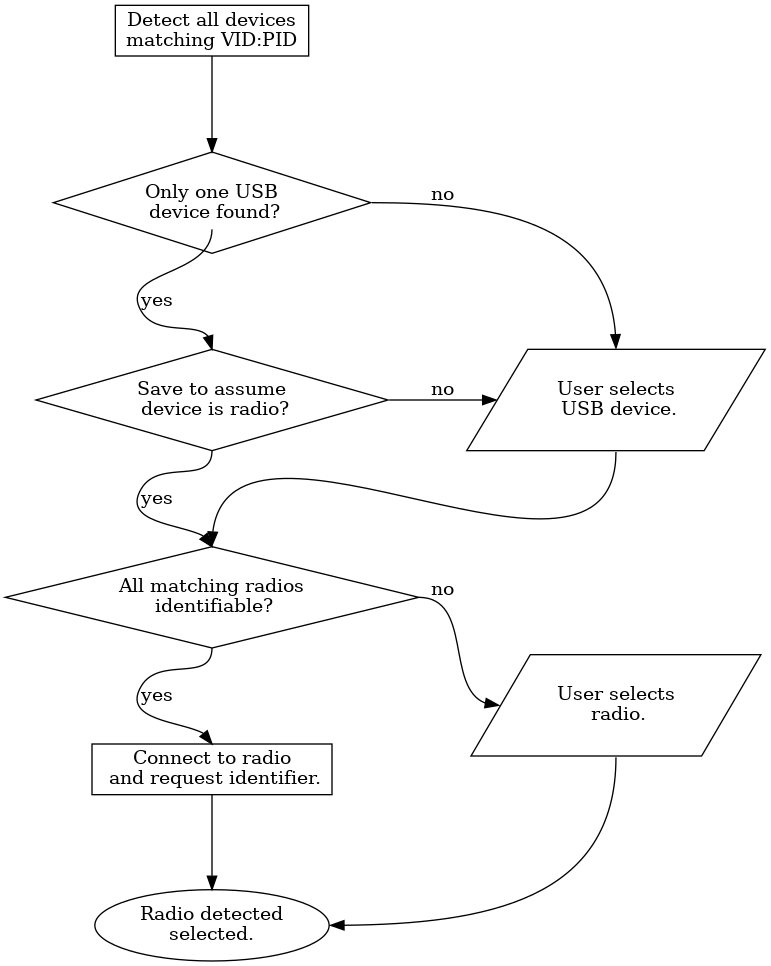This module collects classes and functions to discover and select interfaces to connected radios. More...

Classes | |
| struct | USBDeviceHandle |
| Combines the USB bus and device number, to address a USB device uniquely. More... | |
| class | USBDeviceInfo |
| Generic information about a possible radio interface. More... | |
| class | USBDeviceDescriptor |
| Base class for all radio interface descriptors representing a unique interface to a connected radio. More... | |
Detailed Description
This module collects classes and functions to discover and select interfaces to connected radios.
With an increasing number of supported devices, the issue arises, that auto detection of radios may fail or may even harmful. Some manufacturers simply use generic USB-serial chips within the cable to talk to them over USB. These chips may also be used in other devices that may react harmful to qdmrs attempts to identify them. Moreover, the assumption of the first detected device with a specific VID:PID combination may not be valid. To this end, some means of discovering possible radios and selecting a specific one by the user are needed. Also some radios do not identify themselves before any action is performed (i.e., reading, writing the codeplug or callsign db). Hence, for some devices, the user must specify the type of the radio. The latter concerns the Kydera CDR-300UV, Retevis RT73 and similar devices.
This module specifies the classes and functions to discover possible radios and to address each one uniquely. They allow for an implementation of a semi-automatic device detection. That is, for the majority of radios, if a single matching VID:PID combination is found, it can be assumed that this device is a radio and it can then be identified by sending commands to it. Some radios, however, like the Kydera CDR-300UV, cannot be identified before the actual codeplug read or write operation. They simply do not provide a command for identification.
For a save semi-automatic detection the following steps are performed:

- Search for all USB devices with known VID:PID combinations. This can be done using the
USBDeviceDescriptor::detectmethod. It returns a list of matching device descriptors found. If only one device is found, one may continue with that one if it is save to assume that the device detected is a DMR radio. The latter is not true for radios using generic USB CDC-ACM chips, as other serial devices may be connected. If several devices are found or it is not save to assume a DMR radio, the user must select a device. - Once the USB device is selected, one needs to identify the connected radio. Unfortunately, not all radios can be identified easily by simply sending a command to it. To this end, one first needs to check if the selected device is identifiable. That is, if the protocol provides commands to identify the connected radio. The
USBDeviceInfoprovides this information. If a device is not identifiable, the user must specify the specific connected radio. This can be done by obtaining all known radios matching the selected USB device (VID:PID) by calling RadioInfo::allRadios, passing theUSBDeviceDescriptor.
A example for AnyTone devices
This example tries to detect an AnyTone device and reads the binary codeplug from it. Once the codeplug is read, it is decoded into its generic device independent representation (Config).